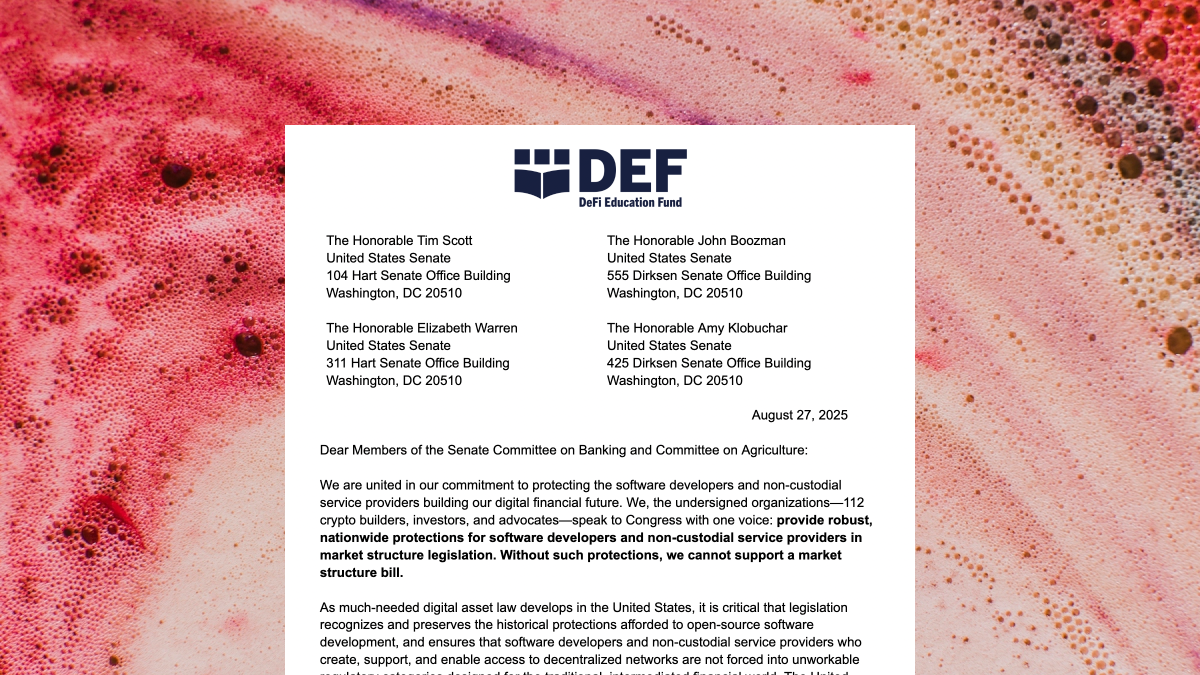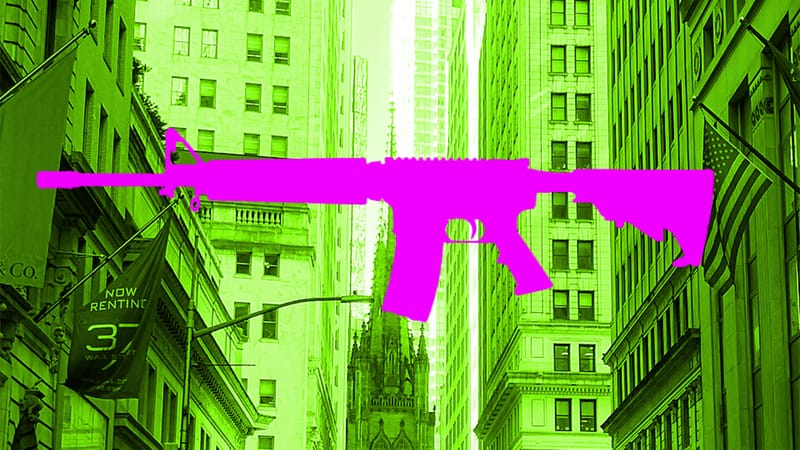DeFi Education Fund Gathers Largest Industry Coalition To Protect Developers
Over 100 industry signatories will not support a market structure bill that does not include protections for non-custodial services.
The advocacy group DeFi Education Fund (DEF) has gathered over 100 signatories asking the Senate to provide robust, nationwide protections for software developers and non-custodial service providers in market structure legislation.
"Without such protections, we cannot support a market structure bill," the letter, addressed to the Senate Committee on Banking and Committee on Agriculture, states.
"We have united the largest and most broad coalition in American crypto history behind one clear message: protect the software developers building our self-custodial, p2p financial future," writes DEF policy lead Gavin Zavatone on X.
What Market Structure Legislation Says on Non-Custodial Developers
In July, the House passed the Digital Asset Market Clarity Act of 2025, or CLARITY Act, which defines how digital asset service providers should be regulated in the United States. The CLARITY Act includes an exception for developers of non-custodial services to not be defined as money transmitters.
As the CLARITY Act reads: "a non-controlling blockchain developer or provider of a blockchain service shall not be treated as a money transmitter or as engaged in 'money transmitting' or, following the date of enactment of this Act, be otherwise subject to any new registration requirement that is substantially similar to the requirement that currently applies to money transmitters, solely on the basis of creating or publishing software to facilitate the creation of, or provision of maintenance services to, a blockchain or blockchain service; providing hardware or software to facilitate a customer’s own custody or safekeeping of the customer’s digital assets; or providing infrastructure support to maintain a blockchain service."
The Senate Banking Committee has since introduced a competing discussion draft of the Responsible Financial Innovation Act of 2025 (RIFA), which similarly includes a section on the protection for non-custodial developers, referred to as the Blockchain Regulatory Certainty Act (BRCA).
As the BRCA states, developers of non-custodial services "shall not be treated as a money transmitter; or engaged in money transmitting; and on or after the date of enactment of this Act, shall not be otherwise subject to any registration requirement that is substantially similar to the requirement that applies to money transmitters, as in effect on the day before the date of enactment of this Act, solely on the basis of creating or publishing software to facilitate the creation of, or providing maintenance services to, a distributed ledger or a service associated with a distributed ledger; providing hardware or software to facilitate a customer’s own custody or safekeeping of the customer’s digital assets; or providing infrastructure support to maintain a distributed ledger service."
Open Source Development Dropped To Just 18% In 2025
Citing a report by Electric Capital, DEF highlights that the number of open-source developers in the US has declined from 25% in 2021 to just 18% in 2025.
"It is critical that legislation recognizes and preserves the historical protections afforded to open-source software development, and ensures that software developers and non-custodial service providers who create, support, and enable access to decentralized networks are not forced into unworkable regulatory categories designed for the traditional, intermediated financial world," DEF's letter states.
"Market structure legislation must treat blockchain technology as neutral infrastructure and include comprehensive protections for the developers building it and the non-custodial service providers enabling users to access it," DEF continues.
"Without these explicit safeguards, the bill risks stifling innovation, undermining open-source development, and driving blockchain infrastructure development out of the United States," DEF concludes.
It should be noted that the exclusion of non-custodial developers to be regulated under existing money transmission laws does not stop Congress from passing legislation that defines new laws to apply to non-custodial developers, as outlined in the White House Digital Assets Report.
The protection of developers from existing laws is yet an important step in the right direction, and a major show of force from the industry that infringements on the right to write code will not be tolerated.
The Rage is a signatory to the letter.
Independent journalism does not finance itself. If you enjoyed this article, please consider making a donation. If you would like to note a correction to this article, please email corrections@therage.co







